Judith Barrington's Writing the Memoir
Chapter 2
Baring one’s soul in a memoir is hard work. Convincing others to care is one thing, but to engage in your life story? That’s a whole other beast. In her book, Writing the Memoir, Judith Barrington says the first step is getting ourselves – and our readers – to care about our memoir. In this podcast we discuss both her philosophical reasoning and practical advice.
In this week’s writing exercise, Kim tries to come up with what her memoir should be about. Spoiler: it does not go well. Thankfully Renee is there to pep-talk Kim off the edge. Fun times!
Plus we have two short interviews with memoirists, Marlene Bumgarner and Janice P. Kehler, in which they discuss how they include self analysis and judgement in their own memoirs.
Want to hear more of our exercise workshop? We post the bonus podcast, SnarkNotes, and detailed write up of the exercises on our Words to Write by Patreon account.
Join Our Process Group
On the podcast, we discussed our Words to Write by Process Group. While it’s not a workshop/critique session, we welcome all writers to gather and discuss any issues they are having in their writing pursuits (and it’s free).
This Episode's Interviews
In the last episode, we discussed “Judgement,” a crucial element in memoir that puts the writer into their own story. Barrington says that a memoirist “must be willing to share her intellectual and emotional quest for answers.” A lot is at stake; Barrington warns us that maintaining “neutrality” causes the reader to “lose respect” for the writer. Given the importance of self analysis, Kim – our fearless co-host – asks two published memoirists how they include “judgement” in their work. Tune in and take notes, Dear Memoirist!
Janice P. Kehler
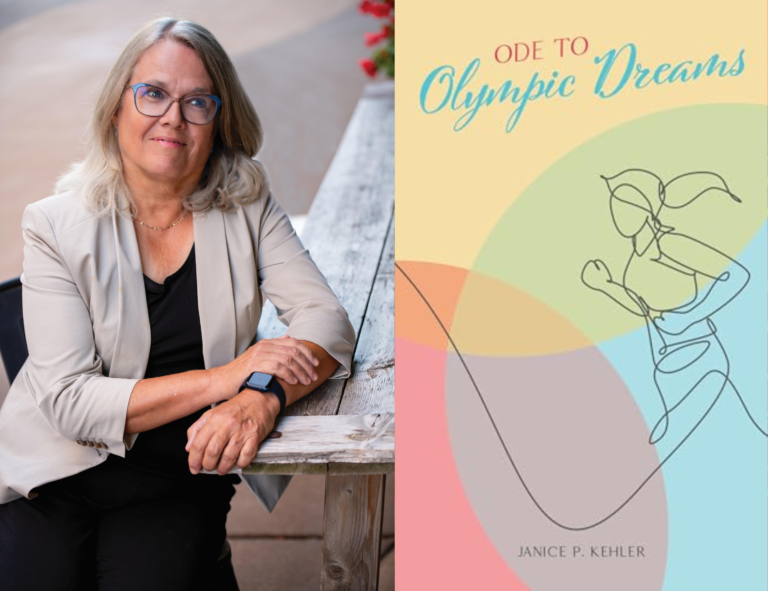
In her memoir, Ode to Olympic Dreams, Janice P. Kehler mixes personal essays of her time as an Olympic hopeful with sports science and athletic history. She has worked in health care in the US and Canada and has co-authored several scientific papers. You can find her memoir here.
Patricia Schultheis
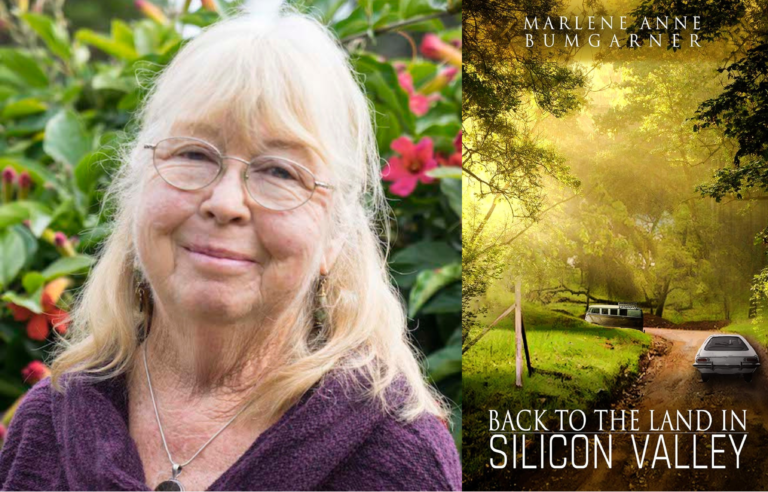
Marlene A. Bumgarner’s memoir, Back to the Land in Silicon Valley, recounts her time in the 1970s living off the grid with her husband and two small children. In addition to her memoir, has authored two books on organic cooking and writes a blog about gardening, natural whole foods, grandchildren and life. You can find her books here.
The Writing Exercise
Make a list of topics about which you feel passionate. What do you argue about? Think about? Want to change? What things happened in your life that “changed everything?” What stories do you hurry to tell a new friend or lover? Which stories that huant you do you not want to tell?
Who Cares? And Other Thoughts on Getting Started
Does the phrase “Who cares” trigger flashbacks to Intro to Composition? Do you still have nightmares of your professor’s judgmental stare when they handed back your essay with the words “please see me” in the end note? Do your thesis statements and topic sentences underlined in red ink haunt your dreams? Well, we hate to break it to you but…
“One of your first tasks, then, is to ask yourself: why do I care about this? The answer will make you feel entitled to tell your own story.”
In other words, if you want to write a memoir, be prepared to put yourself under that quintessential microscope and tell your readers all the juicy bits. It’s not what happened to you that drives the story (although that is part of the fun); it’s how you feel about the experience. Your opinion is what keeps us reading, Dear Writer.
The Authoratative Voice
Why and How do you care about the events in the memoir? The answers to these questions will cascade down into the meaning of your memoir. It’s what helps people connect, makes it important to others, not just myself. How to make readers care about your experience?
Why do readers care so much if you care? Barrington says these opinions shape your authority as a writer and craft your authoratative voice in your writing. Once you figure out “why” you care about the subject of your memoir, the authoratative voice in your writing will follow.
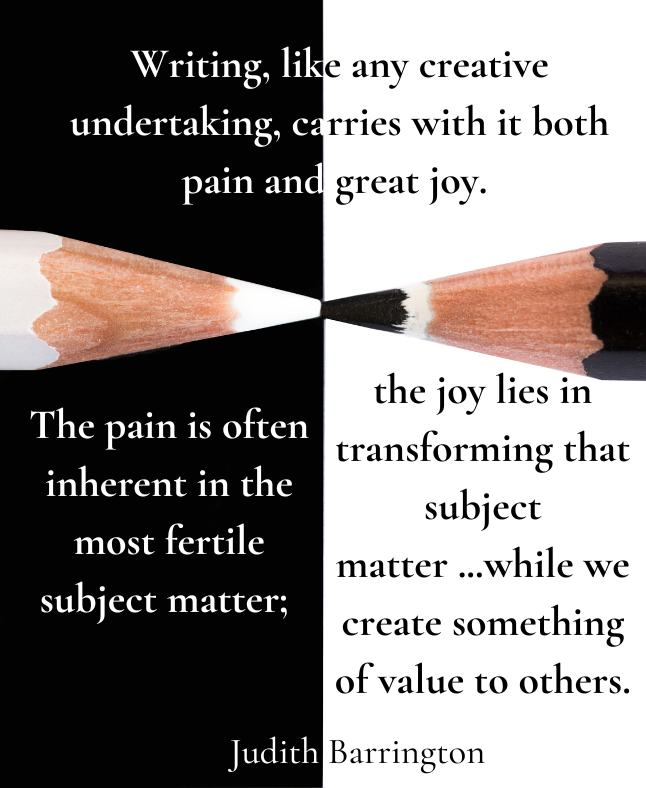
Walk a Mile(stone) in your Own Shoes
Beware, Barrington says, of memoir writing craft books which offer a list of general subjects to kickstart our own stories. Writing about general milestones, like a birthday or a graduation, “often lead to wooden writing that bypasses the heart of the matter.”
“It is not the obvious landmarks of a life that hold the passionate moments, the transformations, and the painful growth: those lie within the incidents and relationships that are unique to each of us. So rather than taking off from such a list, create your own list. Find that haunting story that has nothing to do with what looks like one of life’s ‘big moments.”
If you’re writing a memoir, the goal is to get readers to share in your experience. Readers of memoir intentionally want to know what it was like for you to convert to Judaism, becoming a parent in the intergenerational shadow of abuse, or hop countries and continents in the search for a home. In fiction, however, they want to get lost in the “reader’s dream,” knowing full well the characters and the story are fake.
The Writer's Learning Curve
Barrington brings up an often forgotten issue: the time it takes to learn to write well. So what does one do for the twenty years writing a book? Barrington calls the writer’s learning process an apprenticeship, filled with workshops, classes, and reading. In other words, a certificate or a degree does not a successful writer make.
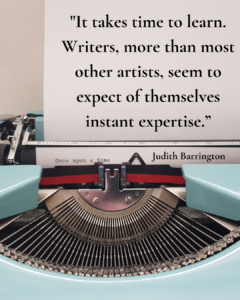
Telling people you’re a ‘writer’ can be an awkward experience because it may take 20 years to write your book. When someone hears you’re a writer, they may ask you what you’ve published. When in reality, you’ve spent the last twenty years writing your book. So, yes, the act of writing makes you a writer, but to the outside world it means something different. With that said, Barrington discusses the incubation period, which is the learning process it takes to write a book, which isn’t easily quantifiable.
Reading (the Importance of)
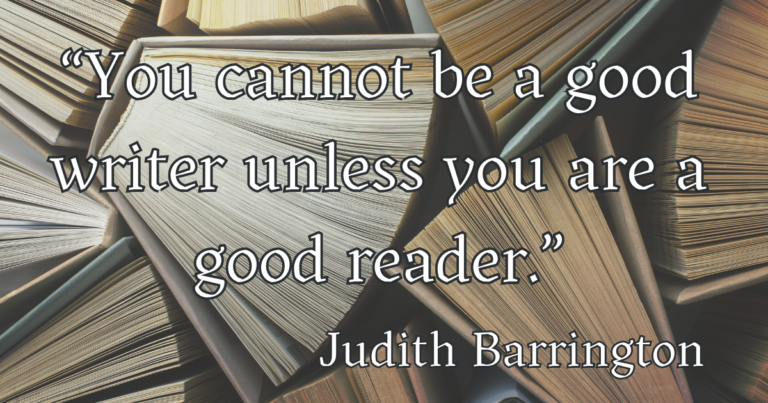
On the podcast, Renee – lacking hard data but a decade of experience in the classroom – said that a lot of beginning writers don’t really want to write. What they want to do is make a movie or Netflix series. Yet, because of lack pf money or resources, they decide to write a book instead, because almost everyone (in America) knows how to write. But do they read? The data we do have is pretty bleak.
So if you’re trying to write your novel or story or memoir or whatever and you don’t read, let’s just say seasoned writers (teachers, editors, agents) can tell who reads and who doesn’t just by the body of work you submit.
Also, Ray Bradbury says it’s good for you. Who are you to argue with Ray Bradbury?
Also, Renee always knows if you haven’t read the assigned reading…
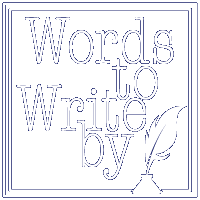
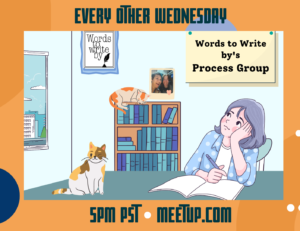


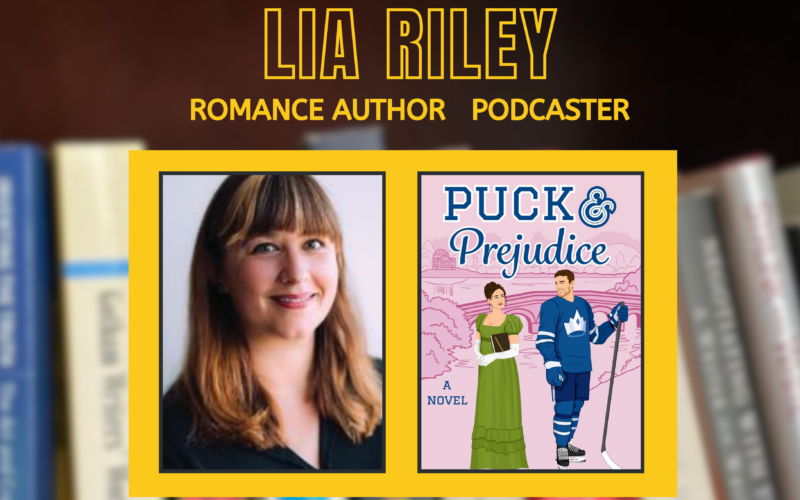
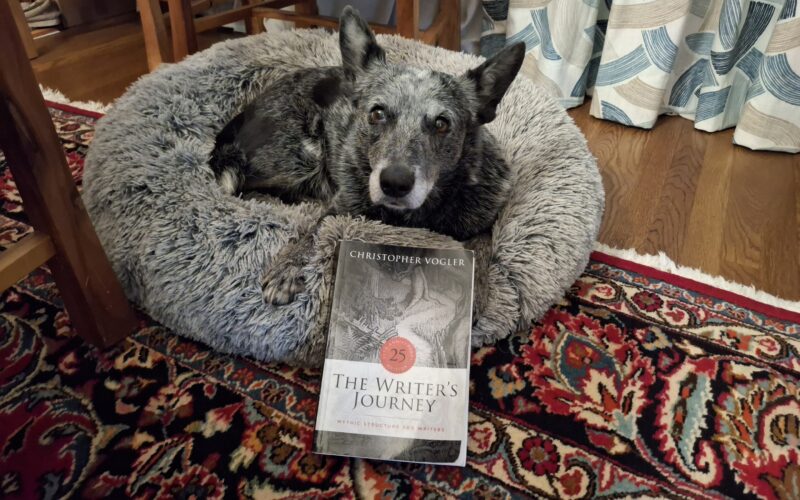
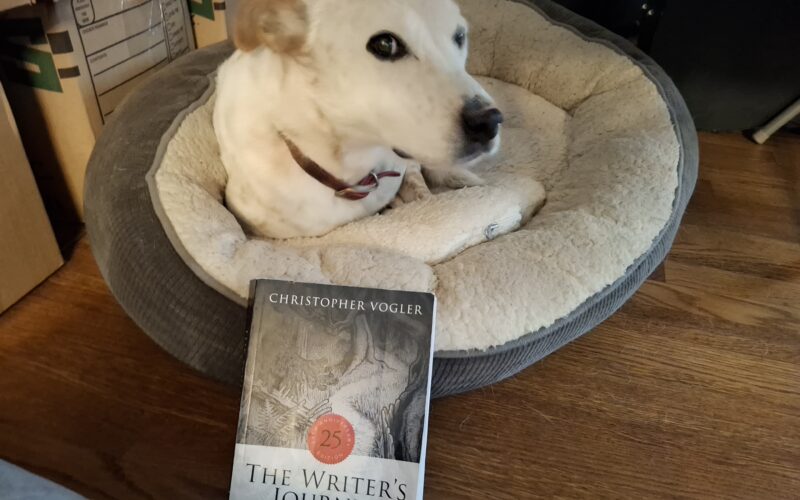
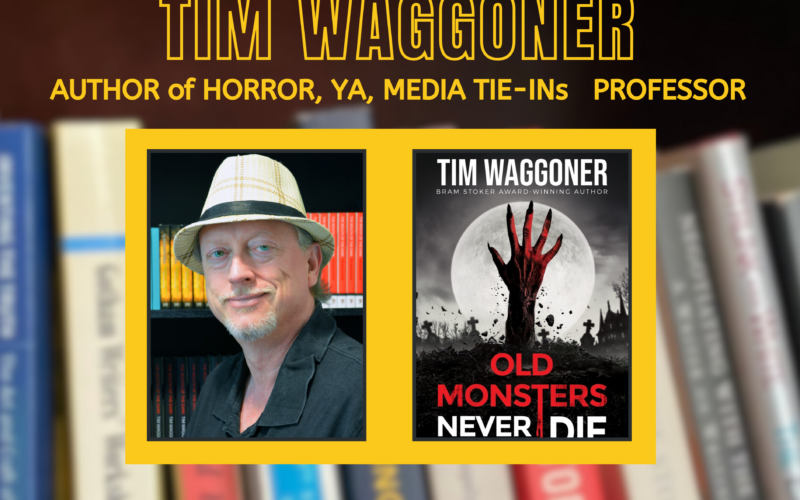
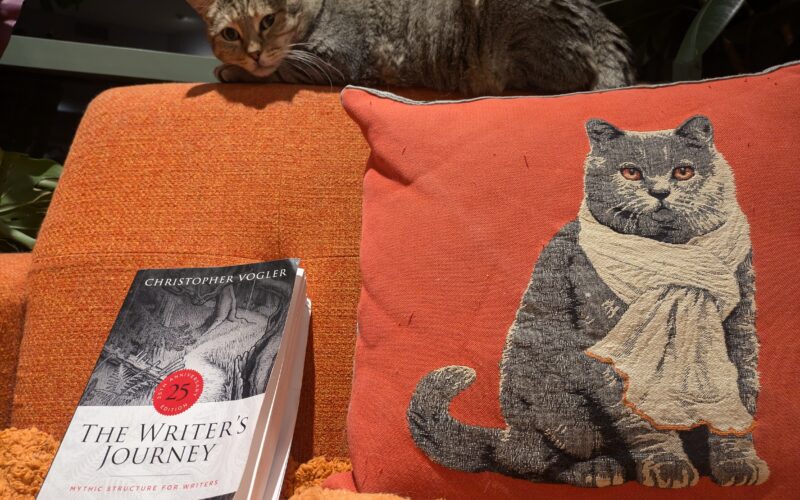
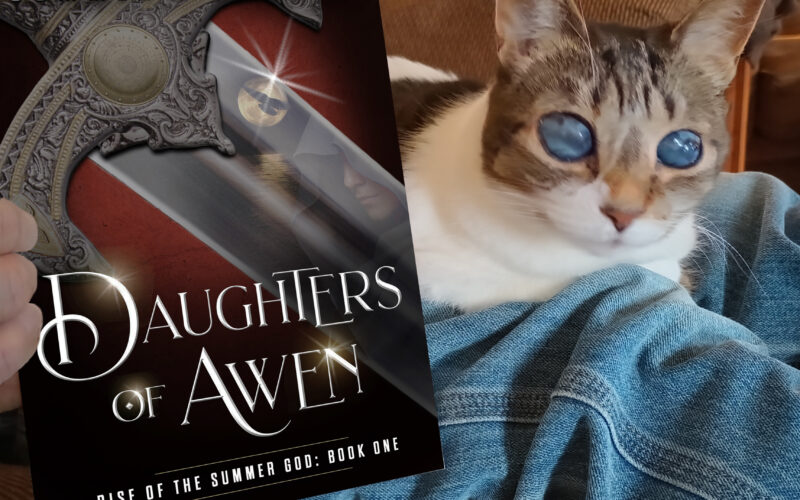

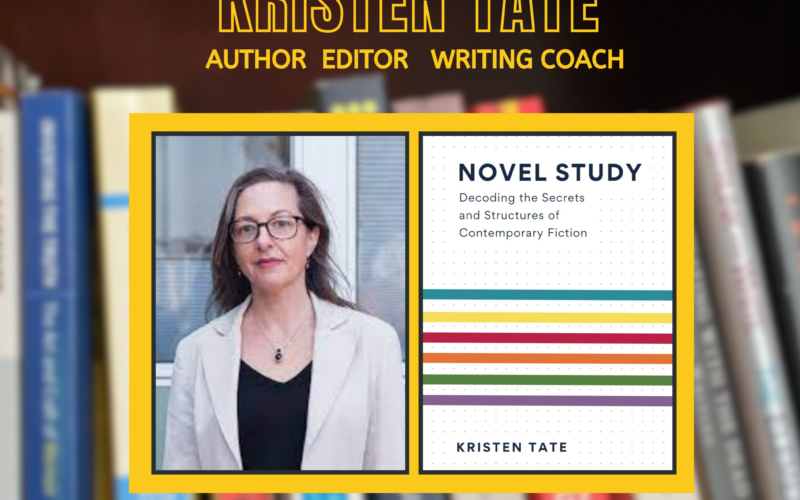
Not Your Usual Words to Write By: The AI Podcasting Challenge
Authors & AI SeriesEpisode 7: Not Your Usual Words to Write By: The AI Podcasting Challenge! Is nothing sacred? After exploring how AI might steal our writing jobs, we’re...